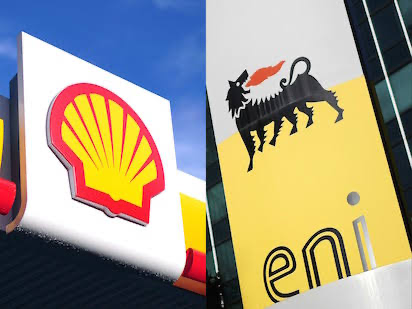Norway’s massive sovereign wealth fund has decided to exclude an Israeli company from its portfolio over its involvement in oil exploration in Western Sahara, a disputed territory claimed by Morocco.
The fund, which manages more than $1.3 trillion of Norway’s oil revenues, said it sold its shares in NewMed Energy, formerly known as Delek Group, because of the “unacceptable risk” of contributing to serious ethical violations.
NewMed acquired a 37.5% stake in the Boujdour Atlantique offshore block in December 2022, following the withdrawal of US-based Kosmos Energy in 2018. The block is located in waters off the coast of Western Sahara, a former Spanish colony that has been under Moroccan control since 1975.
The move by NewMed sparked criticism from human rights groups and activists who support the self-determination of the Sahrawi people, the indigenous inhabitants of Western Sahara. The United Nations considers the territory as “non-self-governing” and has been trying to broker a political solution between Morocco and the Polisario Front, a rebel movement that seeks independence for Western Sahara.
Norway’s decision to divest from NewMed follows a similar action by its ethics council in 2005, when it excluded US oil company Kerr McGee for its involvement in Western Sahara. According to a report by Energy Voice, it also blacklisted Kosmos in 2016.
According to Western Sahara Resource Watch, an advocacy group, Norway’s investment in NewMed was worth around $57 million. The group said Norway was the second-largest investor in the company.
Why Western Sahara Matters
Western Sahara is home to rich natural resources, including phosphate, fish and oil. Morocco has invested heavily in developing the territory, building infrastructure, creating jobs and offering social services. It also claims historical and cultural ties to the land.
However, many Sahrawis feel marginalized and oppressed by the Moroccan authorities, who have been accused of human rights violations and crackdowns on dissent. The Polisario Front, backed by Algeria, has waged a guerrilla war against Morocco until a UN-brokered ceasefire in 1991. It still controls a small part of the territory near the Algerian border.
The status of Western Sahara remains unresolved, despite several rounds of negotiations and proposals. In 2020, former US President Donald Trump recognized Morocco’s sovereignty over Western Sahara as part of a deal to normalize relations between Morocco and Israel. The move was denounced by the Polisario Front and its allies as a violation of international law and the right of the Sahrawi people to self-determination.
The Biden administration has not yet reversed Trump’s decision, but has said it will review it. The UN Security Council has also reaffirmed its commitment to finding a peaceful and lasting solution to the conflict.
What NewMed Says
NewMed Energy, which changed its name in June 2023, is one of Israel’s largest energy companies, with interests in oil and gas exploration, production and distribution. It also has a stake in the East Mediterranean Gas pipeline project, which aims to export natural gas from Israel and Cyprus to Europe.
The company has defended its involvement in Western Sahara, saying it operates in accordance with international law and respects human rights. It also said it contributes to the economic and social development of the local population, and supports the UN-led political process.
NewMed has not commented on Norway’s divestment, but has previously dismissed the criticism from Western Sahara Resource Watch as “biased and misleading”. It also said it has received support from some Sahrawi groups and leaders who welcome its presence in the territory.
The Impact of Norway’s Move
Norway’s pension fund is one of the world’s largest and most influential investors, with stakes in more than 9,000 companies across 70 countries. Its decisions are often followed by other funds and institutions, and can have a significant impact on the reputation and performance of the companies it targets.
The fund’s exclusion of NewMed could put pressure on other investors to reconsider their ties with the company, and on the company itself to rethink its strategy in Western Sahara. It could also send a signal to other companies that are involved or interested in the territory, such as France’s Total and Italy’s Eni, that they could face similar scrutiny and sanctions.
The fund’s move could also boost the morale and visibility of the Sahrawi cause, which has been overshadowed by other conflicts and crises in the region. It could also encourage more dialogue and diplomacy between the parties involved, and between the international community and the UN, to find a way out of the stalemate.



